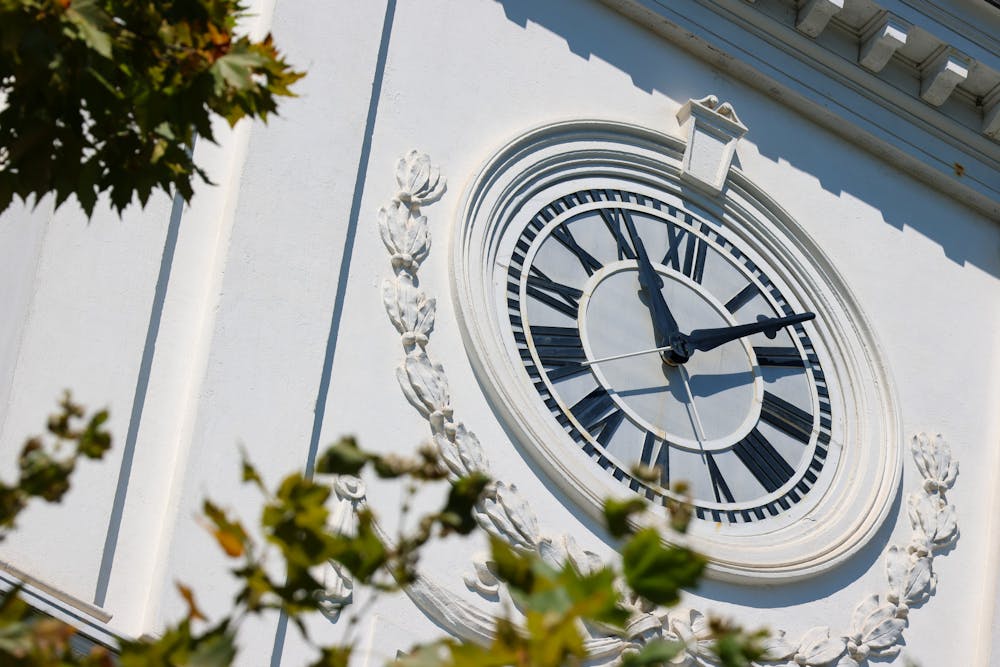In response to the ongoing war in Gaza, Anthropology Department Professor and Graduate Studies Director Clara Han and Anthropology Department Associate Professor and Chair Naveeda Khan wrote the “Open Letter from JHU Faculty in Solidarity with Gaza.” As of Friday, Nov. 3, 29 professors have signed the letter.
In an interview with The News-Letter, Khan shared the reasons behind writing the letter.
“This letter didn’t come out of a deliberative process where we talked to a lot of people and had a lot of forums. This just emerged out of a group of us feeling like we have to mark the moment,” she said. “We just felt that we couldn’t sit by and be quiet.”
The letter condemns the violence inflicted on the Palestinian people by Israel, expresses solidarity with the Palestinian people and calls for an immediate ceasefire. Citing the loss of lives, the collapse of the health system, the blocking of access to basic needs and the mass displacement in Gaza, the letter states that the Israeli response is a draconian collective punishment and poses a real risk of genocide.
“The violence denies Palestinians in Gaza access to food, clean water and fuel, with barely a trickle of food, water and medical supplies entering through the Rafah crossing; Israeli authorities block all other crossings. Over one million have been displaced to the south of Gaza, and in their displaced condition, they continue to be bombed,” the letter states.
The letter also criticizes the actions of the U.S., which the faculty say has continuously supplied munitions and monetary support to Israel while exercising its veto power on the United Nations Security Council to block humanitarian aid.
Khan pointed out the inconsistency between the U.S. narrative as a long-time advocate of human rights and its current actions in Gaza.
“The U.S. is not coming across well in terms of how we stand behind issues of human rights, of the need to fight for people’s self-determination and their rights to sovereignty, especially since the U.S. has made it a very big deal to protect other countries in their efforts of this kind,” she said.
The letter is not intended to serve as a response to the larger Israeli-Palestinian conflict. Khan explained that while it is important to have conversations on topics such as the nature of the organization of Hamas or the two-state solution, this letter in particular focuses on the present loss of lives in Gaza.
“[Our open letter] was really about trying to draw attention to what’s happening right now,” she said. “It wasn’t about trying to equally acknowledge or disacknowledge one side or the other, but [it is] about the humanitarian situation.”
Khan referred back to President Ronald J. Daniels’ message on Oct. 10 as a thoughtful and meaningful response to the overall conflict. However, seeing that since the release of Daniels’ statement, the conflict has further intensified in Gaza, she believes sharper demands are needed at this moment.
The letter also emphasizes a commitment to upholding academic freedom in the context of the global dehumanization of Palestinian life in media coverage and public discourse.
In the interview, Khan shared that, taking into consideration how people have faced repercussions for voicing dissent or criticism of Israeli policies — including being doxxed, harassed or fired — they only sent the open letter to tenured professors for signing.
“We decided early on that we wouldn't approach junior faculty or students, because we did not want them to feel unfairly burdened by our request, particularly given the stories of intimidation and doxxing and so on,” Khan said. “So we decided not to involve them in either the writing or the signing.”
Looking into the future, Khan expressed that the letter is only a small step that joins forces with the various efforts organized by Hopkins students, such as the Oct. 30 walkout and the Oct. 23 candlelight vigil organized by the Johns Hopkins University Dissenters and Speak Out Now.
“The letter is, to me, a small gesture that we need to proliferate in many,” she said. “We need to have teach-ins, we need to have more conversations, we need to have demonstrations, rallies, all sorts of things, because the world is watching.”





